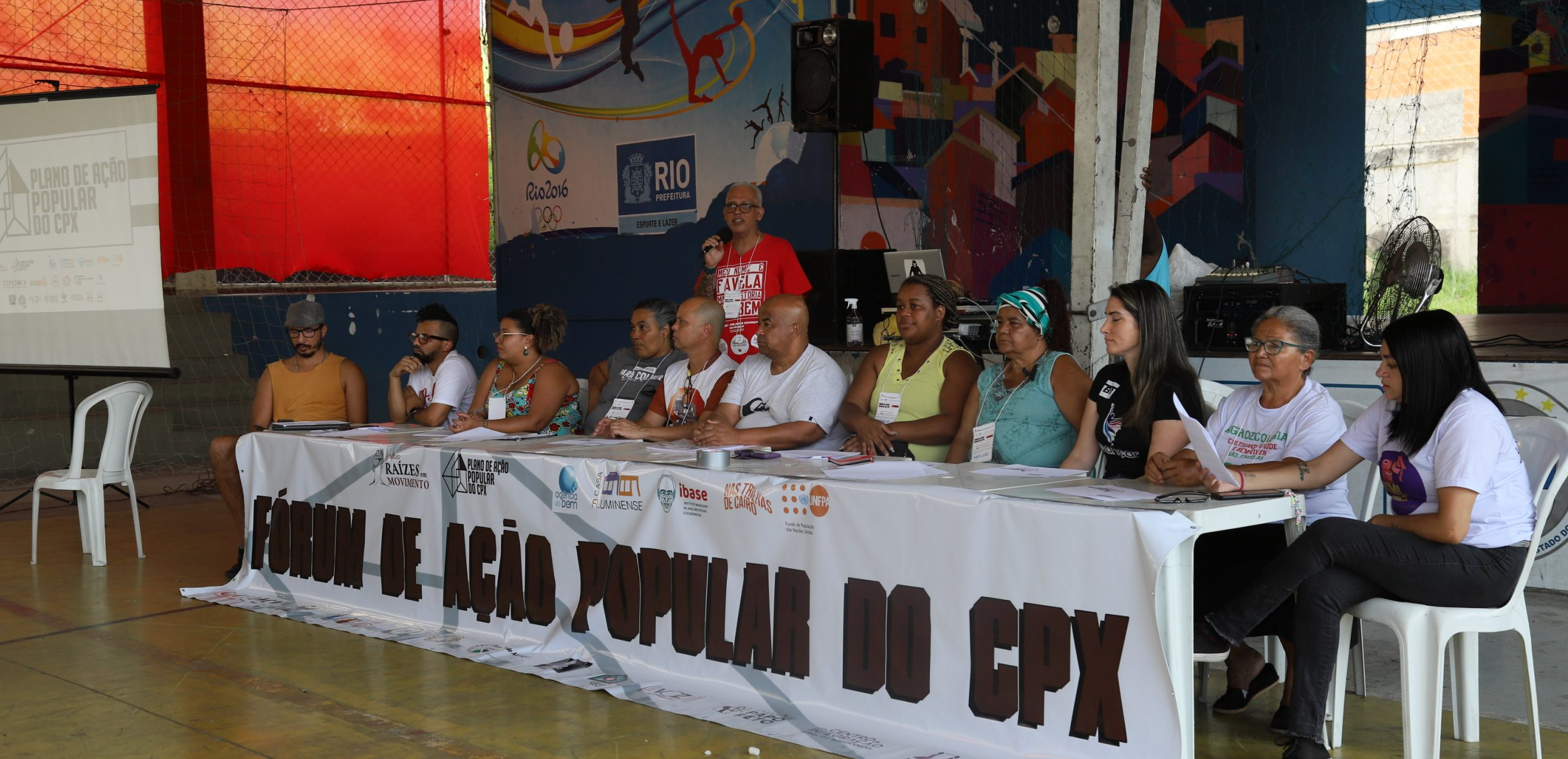
Clique aqui para Português
In a political context that has historically marginalized and ignored the demands of favelas, an initiative like the Complexo do Alemão Popular Action Plan—designed, led, and conducted by the residents of the Complexo do Alemão (CPX) cluster of favelas in Rio de Janeiro’s North Zone—demonstrates the strength and capacity for political coordination within the city’s favela communities. Despite representing a significant portion of Rio’s population and electorate, favelas still face challenges in electing representatives who advocate for their interests. This underscores the complex relationship between these working-class territories and the established political power.
Complexo do Alemão, one of the largest and most emblematic groupings of favelas in Rio de Janeiro, stands as a symbol of resistance and community organizing. Comprising 15 communities and a population of over 60,000, the area is notable not only for its size but also its cultural, social, and political influence. Historically, residents have fought for their rights in the face of constant violations and State neglect.
Since its launch on December 8, 2022, the CPX Popular Action Plan was developed to influence the 2024 municipal elections by serving as a tool to shape the political agendas of candidates—now running for City Council and mayor—based on the collective perspective of Complexo do Alemão residents. Acting as a megaphone, the plan has been amplifying resident demands.
CPX Popular Action Plan: Ot and Resistance Strategies

Led by the Roots in Movement Institute, the CPX Popular Action Plan held its first thematic session on May 7, 2022, and concluded in September 2022 after a total of nine meetings. These sessions were developed based on the format of the Let’s Work It Out project by the Center for Studies, Research, Documentation, and Memory of Complexo do Alemão (CEPEDOCA), a Roots in Movement research initiative. The thematic meetings took place at the headquarters of partner organizations around Complexo do Alemão. Additionally, the Complexo do Alemão Popular Forum was held on September 10, 2022, at the Vila Olímpica Jorginho da SOS.
The thematic meetings and the CPX Popular Action Forum culminated in the CPX Popular Action Plan, a document that captures the outcomes of the discussions. It was developed with the participation of numerous organizations, both within and beyond Complexo do Alemão: Roots in Movement Institute, CEPEDOCA, Brazilian Institute of Social and Economic Analysis (Ibase), Agência do Bem, Casa Fluminense, United Nations Population Fund (UNFPA), Friends of Complexo do Alemão, Serra da Misericórdia Integration Center (CEM), Abraço Campeão, Women of Alemão in Action (MEAA), Dandara dos Palmares Quilombista School, Oca dos Curumins, Casa Voz, Brazilian Institute of Lesbians (IBL), Voz das Comunidades, Reclaiming Innocence Project, Democratic Space of Union, Convivência, Aprendizagem e Prevenção (Educap), ViDançar, Cresce Comunidade, Complexo do Alemão Social Emergency Institute, Favela Talents, Oswaldo Cruz Foundation (Fiocruz), Sergio Arouca National School of Public Health (ENSP), Manguinhos Territorial Laboratory, and the Ministry of Health.
Developed collaboratively, the CPX Popular Action Plan addresses eleven priority themes for the community: (1) Basic Sanitation; (2) Youth; (3) Environment; (4) Sports; (5) Mobility; (6) Health; (7) Women on the Frontline; (8) Public Safety; (9) Education; (10) LGBTI+ Population; and (11) Housing.
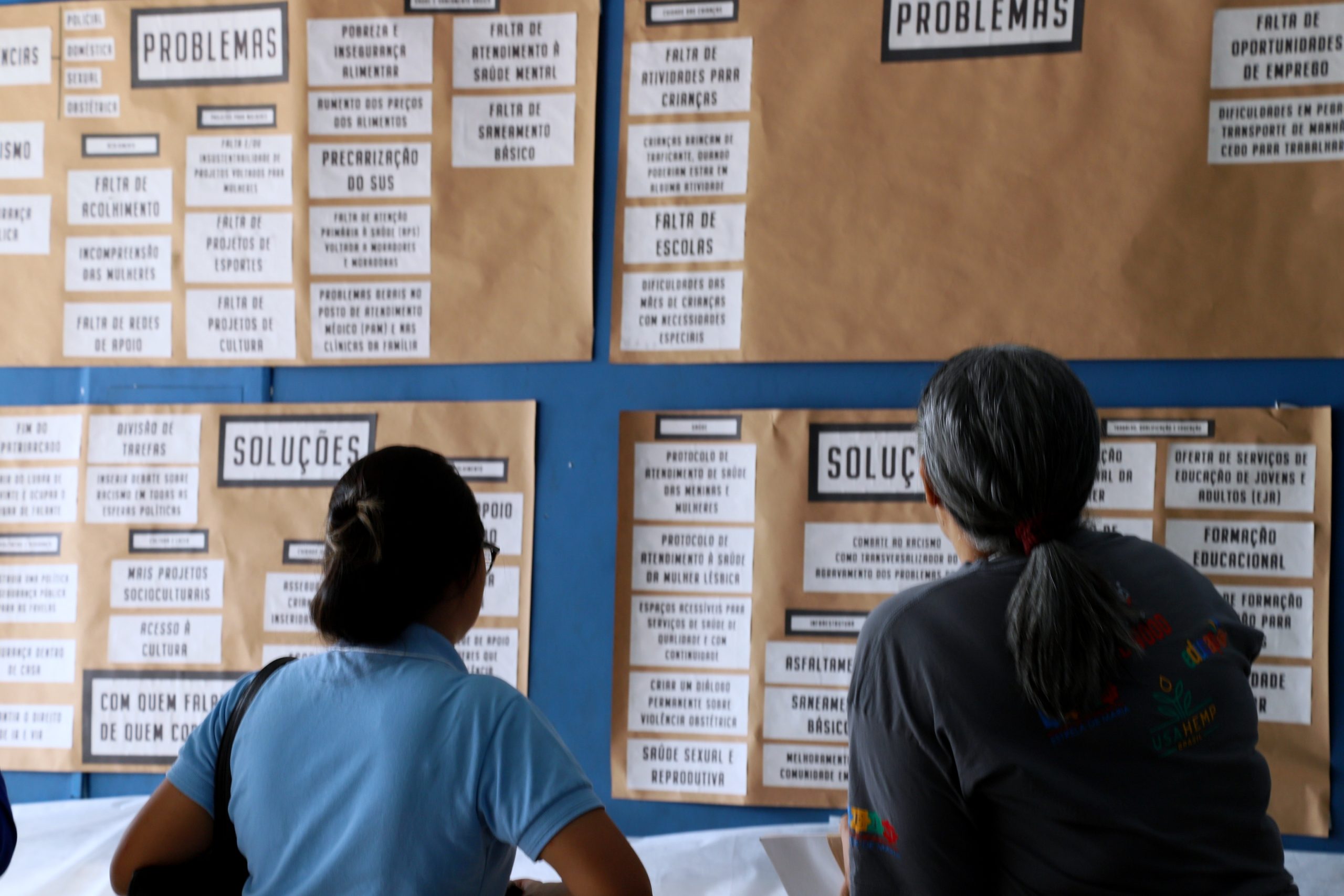
The process directly involved local residents, who gathered multiple times in discussion circles, fostering a deep understanding of the social and cultural dynamics of the area and providing a foundation for the formulation of public policies aimed at addressing the issues raised.
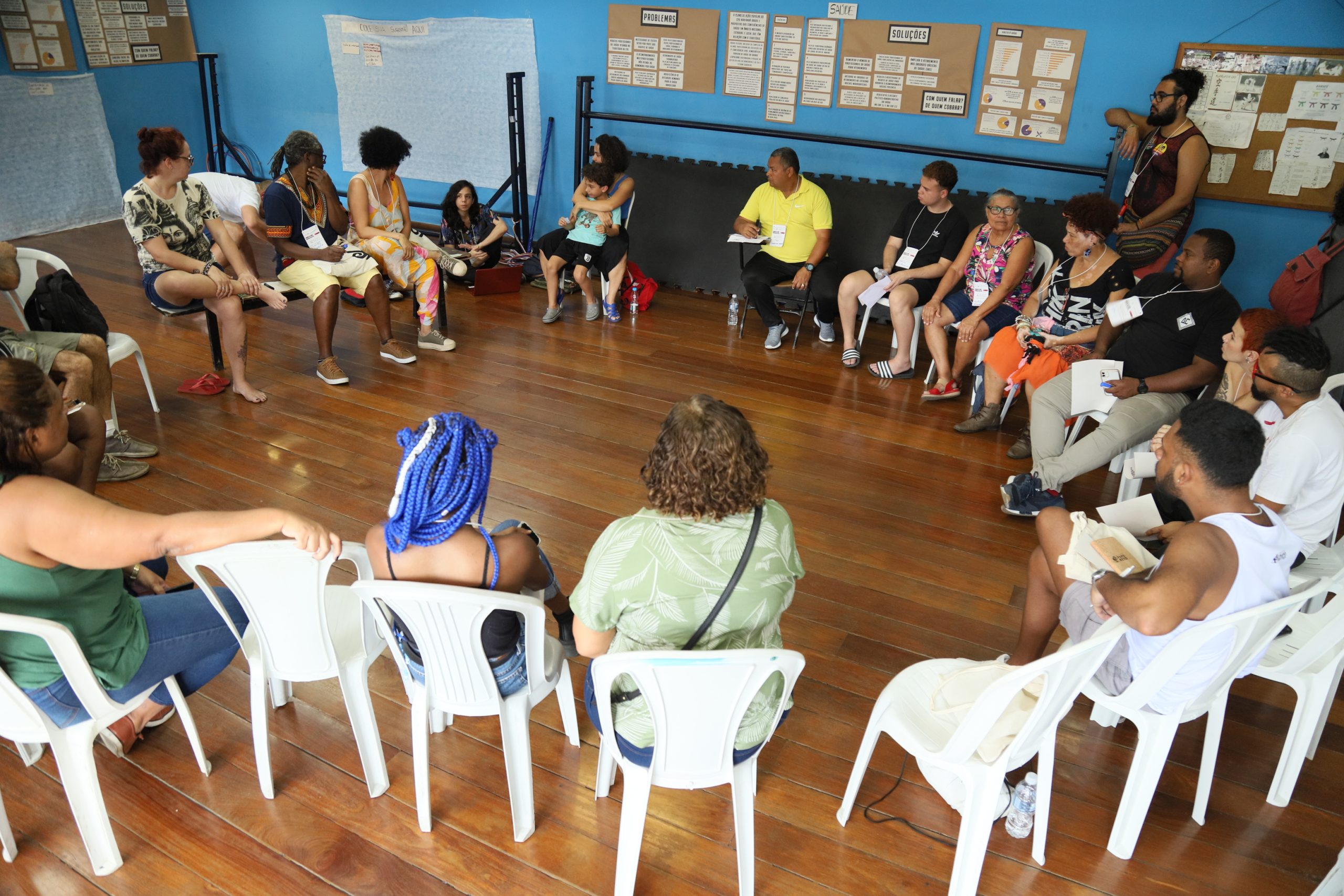
The creation of the plan is not only a response to the historical lack of effective policies for the favela but also a demonstration of the potential for self-organization in working-class territories. Lucia Cabral, from Democratic Space of Union, Coexistence, Learning and Prevention (EDUCAP), a participant in the development of the plan and a resident of Complexo do Alemão, describes the process:
“Our plan has become a strategic forum, a space for knowledge, exchanges, dialogue, listening, and also for social oversight. It’s a place where we put forward the community’s demands and engage in dialogue with the public authorities. It’s become a bible for us.”
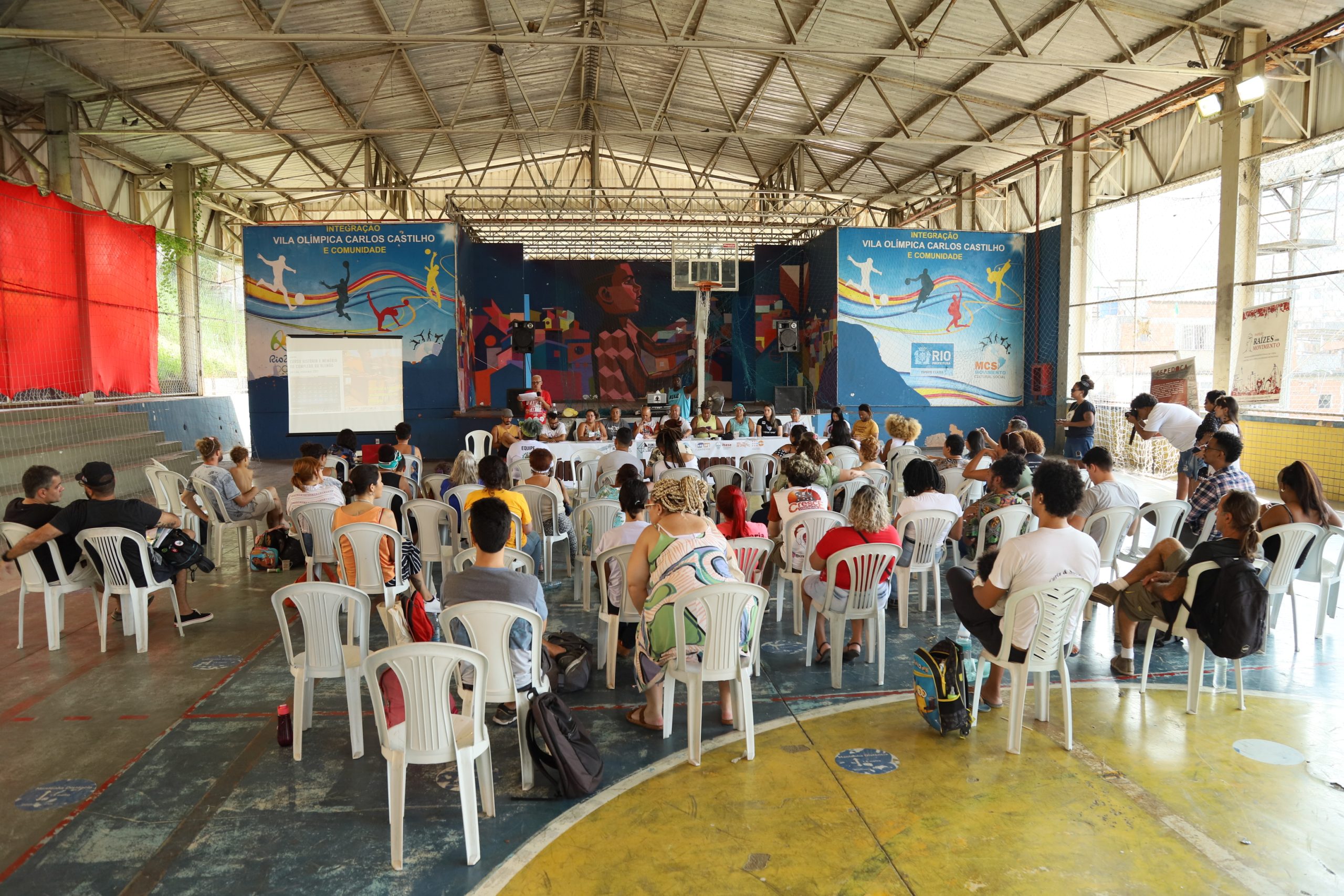
In an interview, David Amen, co-founder of the Roots in Movement Institute, explained that:
“Our main aspiration is to achieve tangible goals in the field of public policy and turn this plan into a tool that elected officials can use fairly and effectively in Complexo do Alemão, so it doesn’t become just another campaign promise.”
He adds that the active participation of residents at all stages made it possible to systematize the community’s true needs and present them in a cohesive and organized manner to public authorities.
The conclusions presented in the 116 pages of the Complexo do Alemão Popular Action Plan reflect common demands shared by the 1,074 favelas in Rio de Janeiro. The Plan’s policy recommendations could be adaptively applied to other favelas in Rio de Janeiro to varying extents.
Access the CPX Popular Action Plan in Full:
Challenges for Local Candidates and the Electoral Dynamics
Despite strong community organization and internal political coordination, favela candidates face barriers to establishing themselves in a political landscape dominated by structural racism, the stigmatization of favelas, and electioneering. In an election year marked by intense competition, the CPX Popular Action Plan has served as a reference for these candidates. By incorporating the plan’s demands into their political platforms, candidates aim to demonstrate their commitment to issues that directly affect residents, cultivating more transparent and representative politics.
Thainã de Medeiros, from the Straight Talk Institute, formerly known as Straight Talk Collective, and a resident of Complexo do Alemão, emphasizes:
“The power struggle has become a struggle for visibility. The vote comes before the proposal. The Action Plan was created precisely to combat this kind of practice. Developed collectively, the plan embodies where the needs originate and what real changes need to be implemented by those in office.”
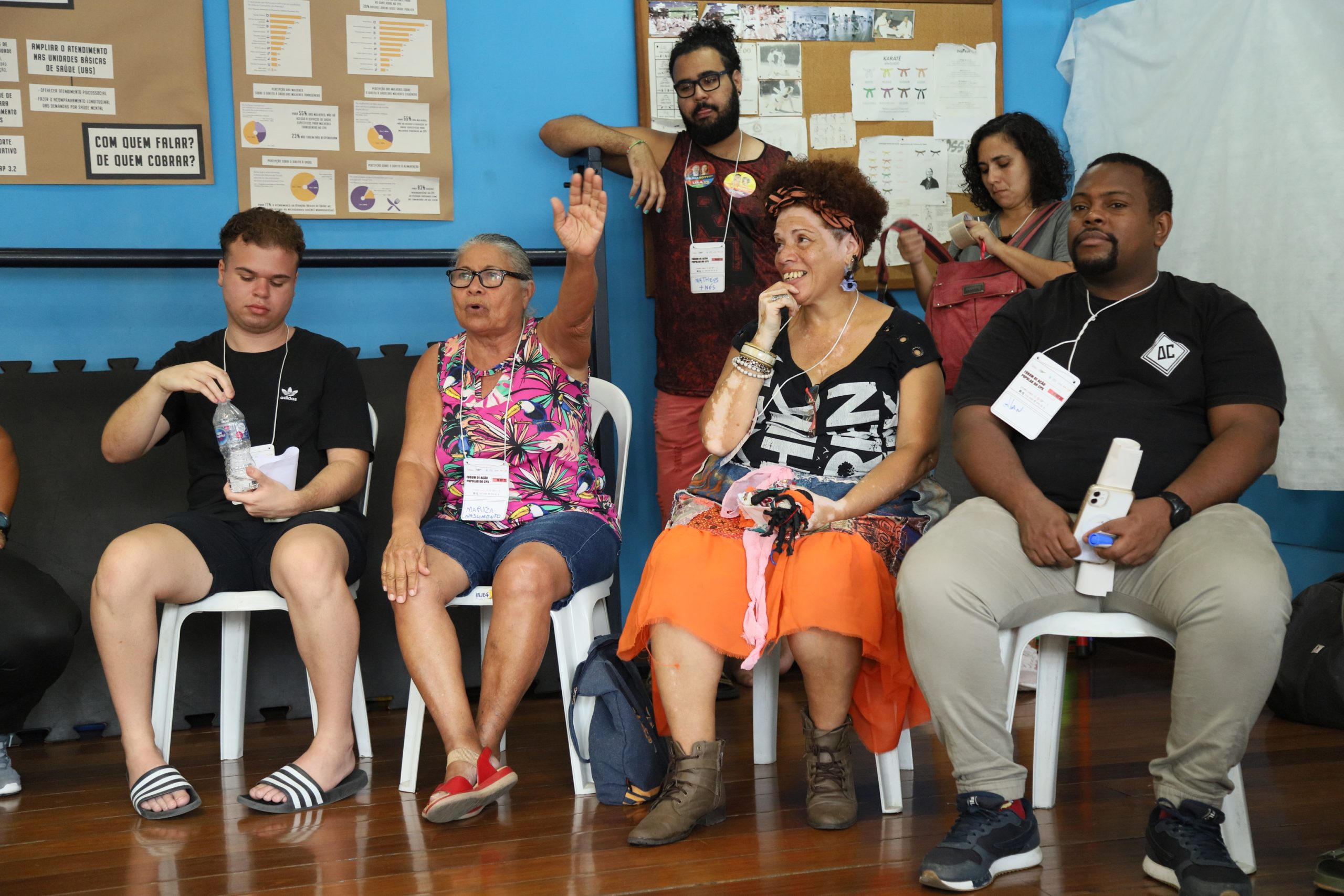
The impact of the CPX Popular Action Plan is being felt in the local political landscape, and according to its organizers, the plan has become a reference for the National Secretariat for Peripheries. One of its main achievements has been the confirmation of the construction of a campus by the Federal Institute of Rio de Janeiro (IFRJ) in Complexo do Alemão—a demand from the community that has spanned a decade and is now set to materialize, achieved through community organizing and negotiations with the federal government.
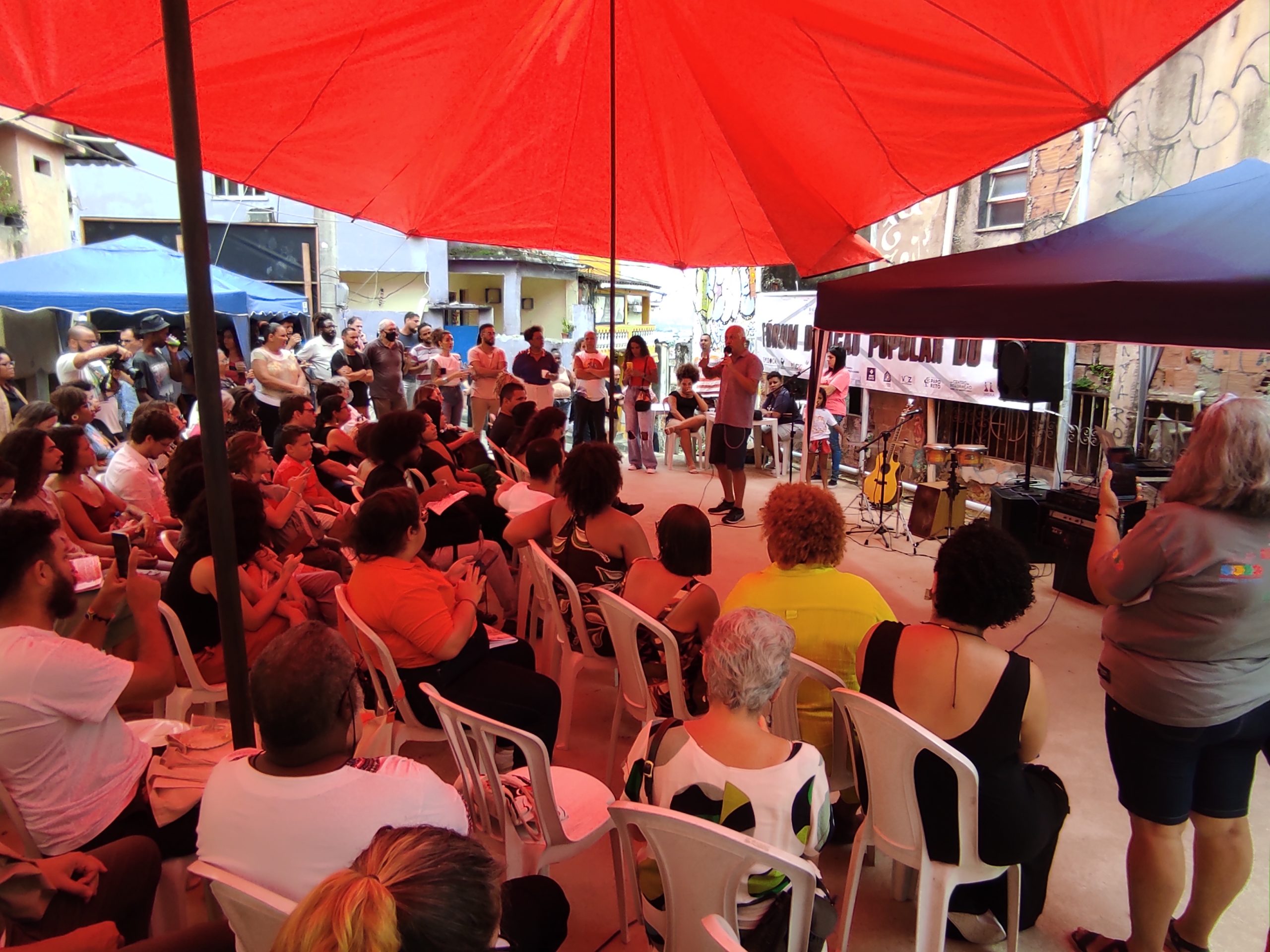
The Complexo do Alemão Popular Action Plan demonstrates that democracy extends far beyond voting; it encompasses the daily struggle for rights and the creation of spaces where all voices, including those from the favelas, shape the direction of the country. The century-long history of Rio’s favelas is rich with political strategies, action, and grassroots mobilization.
Without favela engagement, there is no democracy in Rio de Janeiro. Consequently, the biggest challenge to Brazilian democracy is the State itself and its negligent practices, which hinder the effective participation of favelas and other urban and rural peripheries, leaving them vulnerable.
About the author: Juliana Neris is a photojournalist, grassroots communicator, and samba musician—a carioca born and raised in Vila Vintém. She is a graduate of the Imagens do Povo program, CEO of the Comunicria Portal, and a member of the Mulheres no Ritmo RJ team.
